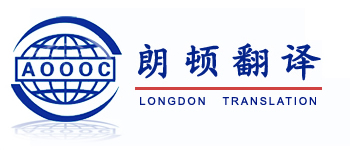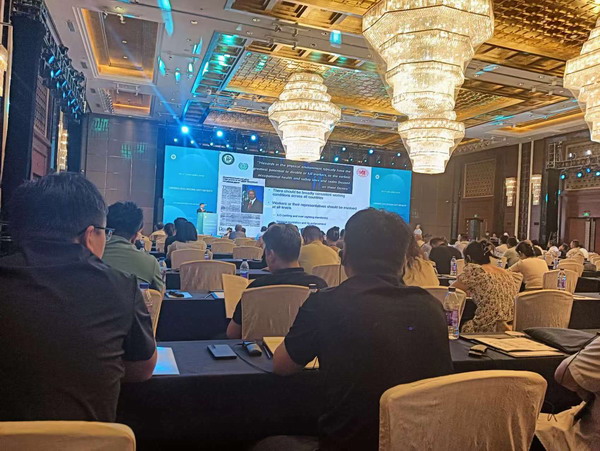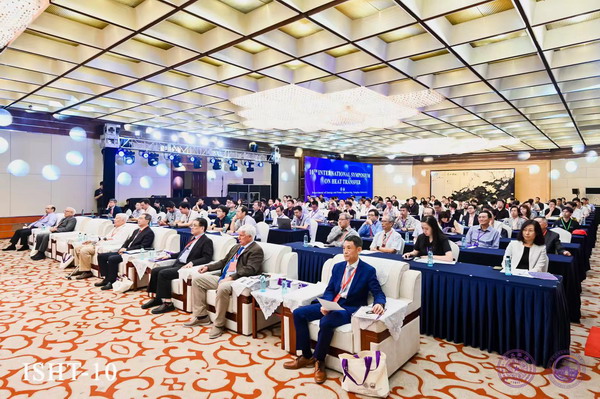
Love means that I know the person I love. IĪ»m aware of the many sides of the other person----not just the beautiful side but also the limitations, inconsistencies and flaws. I have an awareness of the otherĪ»s feelings and thoughts, and I experience something of the core of that person. I can penetrate social masks and roles and see the other person on a deeper level.
É█ęŌ╬Čų°╬ę┴╦ĮŌ╬ę╦∙É█Ą─╚╦ĪŻ╬ęšJ(r©©n)ūRĄĮī”ĘĮĄ─įSČÓĘĮ├µŻ¼▓╗āH╩Ū├└¹ÉķW╣ŌĄ─ę╗├µŻ¼▀Ćėą─▄┴”╔ŽĄ─▓╗ūŃĪóĘ┤Å═(f©┤)¤o│Ż║═ąįĖ±╔ŽĄ─╚▒Ž▌ĪŻ╬ę┴╦ĮŌī”ĘĮĄ─ĖąŪķ║═ŽļĘ©Ż¼╬ę─▄¾w“ץĮ─ŪéĆ╚╦╔Ē╔ŽĄ──│ĘN▒Š┘|(zh©¼)Ą─¢|╬„ĪŻ╬ę─▄═Ė▀^ī”ĘĮ╔ńĮ╗ł÷║ŽĄ─▒Ē¼F(xi©żn)║═į┌╔ńĢ■Ą─ĮŪ╔½Ż¼┐┤ĄĮ╦¹Ė³╔Ņīė┤╬Ą─ŲĘ┘|(zh©¼)ĪŻ
Love means that I care about the welfare of the person I love. To the extent that it is genuine, my caring is not a smothering of the person or a possessive clinging. On the contrary, my caring liberates both of us. If I care about you, IĪ»m concerned about your growth, and I hope you will become all that you can become. Consequently, I donĪ»t put up roadblocks to what you do that enhances you as a person, even though it may result in my discomfort at times.
É█ęŌ╬Čų°╬ęĻP(gu©Īn)ą─╬ę╦∙É█Ą─╚╦Ą─ąęĖŻĪŻų╗ę¬▀@ĘNĻP(gu©Īn)ą─╩Ūšµš\Ą─Ż¼─Ū├┤╦³Š═▓╗Ģ■╩Ū─│ĘNē║ęų╗“š╝ėąąįĄ─ę└ĖĮĪŻ┼c┤╦ŽÓĘ┤Ż¼╬ęĄ─ĻP(gu©Īn)ą─Ģ■╩╣╬ęéāā╔éĆČ╝▓╗╩▄ĄĮ╩°┐`ĪŻ╚ń╣¹╬ęį┌║§─ŃŻ¼╬ęŠ═Ģ■ĻP(gu©Īn)ūó─ŃĄ─│╔ķLŻ¼╬ꎯ═¹─ŃīóüĒ│╔×ķę╗éĆėą╦∙ū„×ķĄ─╚╦ĪŻę“┤╦Ż¼ī”─Ń×ķ═Ļ╔Ųūį╝║╦∙ū÷Ą─ę╗ŪąŻ¼╬ęøQ▓╗įO(sh©©)ų├šŽĄKŻ¼╝┤╩╣─Ńū÷Ą─╩┬ŪķėąĢrĢ■╩╣╬ę▓╗┐ņĪŻ
Love means having respect for the dignity of the person I love. If I love you, I can see you as a separate person, with your own values and thoughts and feelings, and I do not insist that you surrender you identity and conform to an image of what I expect you to be for me. I can allow and encourage you to stand alone and to be who you are, and I avoid treating you as an object or using you primarily to gratify my own needs.
É█ęŌ╬Čų°ūųž╬ę╦∙É█Ą─╚╦Ą─ūć└(y©ón)ĪŻ╚ń╣¹╬ęÉ█─ŃŻ¼╬ęĢ■░č─Ń┐┤│╔╩Ū¬Ü┴óĄ─éĆ¾wŻ¼ėąūį╝║Ą─ārųĄė^Īó╦╝Žļ║═ĖąŪķŻ¼╬ę▓╗Ģ■łį│ųūī─ŃĘ┼Śēūį╝║Ą─╠žąįŻ¼╩╣─Ńūā│╔ę╗éĆ╬ęŲ┌═¹─Ń│╔×ķĄ──ŪĘN╚╦ĪŻ╬ęĢ■į╩įS▓ó╣─äŅ─Ń▒Ż│ų¬Ü┴óŻ¼łį│ųūį╝║Ą─╠ž╔½Ż¼╬ęĢ■▒▄├Ō░č─Ń«ö(d©Īng)ū„ę╗╝■¢|╬„ī”┤²╗“ė├─ŃüĒų„ę¬ØMūŃ╬ęūį╔ĒĄ─ąĶę¬ĪŻ
Love means having a responsibility toward the person I love. If I love you, IĪ»m responsive to most of your major needs as a person. This responsibility does not entail my doing for you what you are capable of doing for yourself; nor does it mean that I run your life for you. It does imply acknowledging that what I am and what I do affects you, so that I am directly involved in your happiness and your misery. A lover does have the capacity to hurt or neglect the loved one, and in this sense I see that love entails and acceptance of some responsibility for the impact my way of being has on you.
É█ęŌ╬Čų°ī”╬ę╦∙É█Ą─╚╦ĖČž¤(z©”)╚╬ĪŻ╚ń╣¹╬ęÉ█─ŃŻ¼╬ęŠ═Ģ■ĘeśOī”┤²─ŃĄ─ąĶę¬ĪŻ▀@ĘNž¤(z©”)╚╬▓ó▓╗Ą╚ė┌╬ęę¬×ķ─Ńū÷─Ńūį╝║─▄ē“ū÷ĄĮĄ─╩┬ŪķŻ¼ę▓▓╗╩Ūšf╬ę×ķ─Ń╣▄└Ē─ŃĄ─╔·╗ŅĪŻ╦³æ¬(y©®ng)įō╩Ū│ąšJ(r©©n)╬ę║═╬ę╦∙ū÷Ą─╩┬Ģ■ī”─Ń«a(ch©Żn)╔·ė░ĒæŻ¼ę“┤╦╬ęų▒Įė┼c─ŃĄ─ąęĖŻ║══┤┐Ó┬ō(li©ón)ŽĄį┌ę╗ŲĪŻę╗éĆ╚╦Ą─┤_┐╔─▄Ģ■é¹║”╗“║÷ęĢ╦¹╦∙É█Ą─╚╦ĪŻÅ─▀@éĆęŌ┴x╔ŽšfŻ¼É█░³║¼ų°╬ęę¬×ķ╬ę(Ą─╔·╗ŅĘĮ╩Į)ī”─ŃĄ─ė░Ēæ│ąō·(d©Īn)ę╗Č©Ą─ž¤(z©”)╚╬ĪŻ
Love means growth for both myself and the person I love. If I love you, I am growing as a result of my love. You are a stimulant for me to become more fully what I might become, and my loving enhances your being as well. We each grow as a result of caring and being cared for; we each share in an enriching experience that does not detract form our being.
É█ęŌ╬Čų°║═╦∙É█Ą─╚╦╣▓═¼│╔ķLĪŻ╚ń╣¹╬ęÉ█─ŃŻ¼╬ęĢ■×ķ┴╦ī”─ŃĄ─É█Č°│╔ķLĪŻ─Ńīó╩Ū╝żäŅ╬ęĖ³╝ė│õīŹūį╝║Ą─äė┴”Ż¼╬ęĄ─É█ę▓Ģ■╩╣─Ń▓╗öÓ═Ļ╔Ų╠ßĖ▀ĪŻ╬ęéāę“É█┼c▒╗É█Č°│╔ķL;╬ęéā▒╦┤╦ĘųŽĒĘe└█Ą─žSĖ╗Įø(j©®ng)“×Č°ėų▓╗Ž„£pūį╝║Ą─éĆąįĪŻ
Love means making a commitment to the person I love. This commitment does not entail surrendering our total selves to each other; nor does it imply that the relationship is necessarily permanent. It does entail a willingness to stay with each other in times of pain, uncertainty, struggle, and despair, as well as in times of calm and enjoyment.
É█ęŌ╬Čų°─▄ē“│ąųZ╬ę╦∙É█Ą─╚╦ĪŻ▀@ĘN│ąųZ▓ó▓╗ąĶę¬╬ęéāŽÓ╗źĘ┼Śēūį╔ĒĄ─╠žąį;ę▓▓╗╩ŪųĖ╬ęéāĄ─▀@ĘNĻP(gu©Īn)ŽĄę╗Č©ę¬╠ņķLĄžŠ├ĪŻ▀@ĘN│ąųZ▓╗āH░³║¼ų°įĖęŌį┌═┤┐ÓĪó¬qįźĪóĮ^═¹Ą─Ģr║“ŽÓ╗źų¦│ųŻ¼ę▓░³║¼ų°╣▓ŽĒŲĮņo┼cÜgśĘĪŻ
Love means trusting the person I love. If I love you, I trust that you will accept my caring and my love and that you wonĪ»t deliberately hurt me. I trust that you will find me lovable and that you wonĪ»t abandon me; I trust the reciprocal nature of our love. If we trust each other, we are willing to be open to each other and can shed masks and pretenses and reveal our true selves.
É█ęŌ╬Čų°ŽÓą┼╬ę╦∙É█Ą─╚╦ĪŻ╚ń╣¹╬ęÉ█─ŃŻ¼╬ęĢ■ŽÓą┼─ŃīóĮė╩▄╬ęĄ─ĻP(gu©Īn)ą─┼cÉ█ęŌŻ¼╬ęĢ■ŽÓą┼─Ń▓╗Ģ■╣╩ęŌ░č╬ęé¹║”Ż¼╬ęĢ■ŽÓą┼─ŃĮKīó░l(f©Ī)¼F(xi©żn)╬ęĄ─┐╔É█ų«╠ÄŻ¼╬ęĢ■ŽÓą┼─Ń▓╗Ģ■░č╬ęŚēė┌▓╗ŅÖ;╬ęĢ■ŽÓą┼╬ęéā╩ŪŽÓÉ█Ą─ĪŻ╚ń╣¹╬ęéā▒╦┤╦ą┼╚╬Ż¼╬ęéāŠ═įĖęŌ│©ķ_ą─ņķŻ¼š¬Ž┬├µŠ▀Ż¼╚źĄ¶é╬čbŻ¼’@╩Š╬ęéāšµīŹĄ─ūį╬ęĪŻ
Love can tolerate imperfection. In a love relationship there are times of boredom, times when I may feel like giving up, times of real strain, and times I experience an impasse. Authentic love does not imply enduring happiness. I can stay during rough times, however, because I can remember what we had together in the past, and I can picture what we will have together in our future if we care enough to face our problems and work them through. We agree with Reverend Maier when he writes that love is a spirit that changes life. Love is a way of life that is creative and that transforms. However, Maier does not view love as being reserved for a perfect world. Ī▒Love is meant for our imperfect world where things go wrong. Love is meant to be a spirit that works in painful situations. Love is meant to bring meaning into life where nonsense appears to reign.Ī▒ In other words, love comes into an imperfect world to make it livable.
É█┐╔ęį╚▌╚╠╚▒³cĪŻį┌É█Ą─ĻP(gu©Īn)ŽĄųąŻ¼▒ž╚╗Ģ■ėąģƤ®Ą─Ģr║“Ż¼ėą╬ęŽļĘ┼ŚēĄ─Ģr║“Ż¼ėąĻP(gu©Īn)ŽĄŠoÅłĄ─Ģr║“Ż¼ėą╬ęĖąĄĮĮ^═¹Ą─Ģr║“ĪŻšµÉ█▓╗āHāHęŌ╬Čų°╬ęéā─▄╣▓═¼ĘųŽĒąęĖŻĪŻį┌ŲDļy└¦┐ÓĄ─ĢrŲ┌╬ęę▓─▄║═─Ńį┌ę╗ŲŻ¼ę“×ķ╬ęėøĄ├╬ęéā▀^╚źį┌ę╗ŲČ╚▀^Ą─Ģr╣ŌŻ¼╚ń╣¹╬ęéāī”å¢Ņ}ĮoėĶūŃē“Ą─ųžęĢŻ¼├µī”å¢Ņ}▓ó─▄Č╚▀^└¦ļyĢrŲ┌Ż¼╬ę─▄ŽļŽ±╬ęéāīóüĒį┌ę╗Ų╩ŪéĆ╩▓├┤śėūėĪŻ╬ęéā═¼ęŌ├ĘĀ¢Į╠╩┐Ą─ė^³cŻ¼╝┤É█╩ŪĖ─ūā╔·╗ŅĄ─Š½╔±┴”┴┐ĪŻÉ█╩Ūę╗ĘNäō(chu©żng)įņąįĄ─╔·╗ŅĘĮ╩Į▓ó─▄╩╣╔·╗ŅĖ─╔ŲĪŻĄ½╩Ū├ĘĀ¢▓ó▓╗šJ(r©©n)×ķÉ█╩Ū═Ļ├└╩└Įń¬ÜėąĄ─ĪŻĪ░É█╩ŪĮoėĶ╬ęéā▀@éĆėąå¢Ņ}Ą─▓╗═Ļ╔ŲĄ─╩└ĮńĄ─ĪŻÉ█╩Ūį┌═┤┐ÓĄ─ŪķørŽ┬░l(f©Ī)ō]ū„ė├Ą─Š½╔±ĪŻÉ█Š═╩Ūę¬╩╣┐┤ŲüĒ¤oęŌ┴xĄ─╔·╗ŅūāĄ├ėąęŌ┴xĪŻĪ▒ōQŠõįÆšfŻ¼É█üĒĄĮ▀@éĆ▓╗═Ļ├└Ą─╩└Įń╩╣╦³▀m║Ž╚╦éāŠėūĪĪŻ
Love is freeing. Love is freely given, not doled out on demand. At the same time, my love for you is not dependent on whether you fulfill my expectations of you. Authentic love does not imply Ī░IĪ»ll love you when you become perfect or when you become what I expect you to become.Ī▒ Authentic love is not given with strings attached. There is an unconditional quality about love.
É█╩Ūūįė╔Ą─ąą×ķĪŻÉ█╩ŪūįįĖĄžĖČ│÷Ż¼Č°▓╗╩Ūę¬Ū¾ų«Ž┬Ą─╩®╔ßĪŻ┼c┤╦═¼ĢrŻ¼╬ęī”─ŃĄ─É█▓ó▓╗╚ĪøQė┌─Ń╩Ūʱ─▄ØMūŃ╬ęī”─ŃĄ─Ų┌═¹ĪŻšµÉ█▓ó▓╗ęŌ╬Čų°Ī░«ö(d©Īng)─Ń│╔×ķ═Ļ├└Ą─╚╦╗“«ö(d©Īng)─Ń│╔×ķ╬ę╦∙Ų┌═¹Ą──ŪĘN╚╦ĢrŻ¼╬ę▓┼É█─ŃĪŻĪ▒šµÉ█▓╗╩ŪĦėąĖĮ╝ėŚl╝■Ą─ĖČ│÷ĪŻÉ█╩Ū¤oŚl╝■Ą─ĪŻ
Love is expansive. If I love you, I encourage you to reach out and develop other relationships. Although our love for each other and our commitment to each other might bar certain actions on our parts, we are not totally and exclusively wedded to each other. It is a pseudolove that cements one person to another in such a way that he or she is not given room to grow. Casey and Vanceburg put this notion well:
É█╩Ū▓®┤¾Ą─ĪŻ╚ń╣¹╬ęÉ█─ŃŻ¼╬ęĢ■╣─äŅ─ŃŽ“═Ō░l(f©Ī)š╣Ż¼Į©┴óŲõ╦¹Ą─╚╦ļHĻP(gu©Īn)ŽĄĪŻļm╚╗╬ęéāų«ķgĄ─É█║═▒╦┤╦Ą─│ąųZ▓╗į╩įS╬ęéāū÷─│ą®╩┬ŪķŻ¼Ą½╩Ū╬ęéā▓ó▓╗╩Ū═Ļ╚½ÅžĄūĄž╦®į┌ę╗ŲĪŻ░čę╗éĆ╚╦║═┴Ēę╗éĆ╚╦╦®į┌ę╗ŲŻ¼Č°▓╗ĮoėĶ╦¹░l(f©Ī)š╣Ą─┐šķgŻ¼▀@╩Ūę╗ĘN╠ō╝┘Ą─É█ĪŻäP╦╣║═£ž╦╣▓«Ė±ī”▀@éĆĖ┼─Ņėą║▄║├Ą─ĮŌßīŻ║
The honest evidence of our love is our commitment to encouraging anotherĪ»s full development. We are interdependent personalities who need one anotherĪ»s presence in order to fulfill our destiny. And yet, we are also separate individuals. We must come to terms with our struggles alone.
╬ęéāŽÓ╗ź│ąųZę¬╣─äŅī”ĘĮ│õĘųĄ─░l(f©Ī)š╣Ż¼▀@Š═šµīŹūC├„┴╦╬ęéāų«ķgĄ─É█ĪŻ╬ęéā╩ŪŽÓ╗źę└┤µĄ─Ż¼×ķ┴╦═Ļ│╔ūį╝║Ą─╩╣├³Ż¼ąĶę¬ī”ĘĮĄ─┤µį┌ĪŻĄ½╬ęéāėų╩Ū▓╗═¼Ą─éĆ¾wŻ¼╬ęéā▒žĒÜĖ„ūį├µī”ūį╝║Ą─Ŗ^ČĘĪŻ
Love means having a want for the person I love without having a need for that person in order to be complete. If I am nothing without you, then IĪ»m not really free to love you. I love you and you leave, IĪ»ll experience a loss and be sad and lonely, but IĪ»ll still be able to survive. If I am not free to challenge our relationship; nor am I free to challenge and confront you. Because of my fear of losing you, IĪ»ll settle for less than I want, and this settling will surely lead to feelings of resentment.
É█ęŌ╬Čų°╬ęąĶę¬╬ę╦∙É█Ą─╚╦Ż¼Ą½▓ó▓╗╩Ū╚▒╔┘╦¹Š═▓╗ąąĪŻ╚ń╣¹ø]ėą─Ń╬ęŠ═¤oĘ©╔·┤µŻ¼─Ū├┤╬ęŠ═▓╗─▄ūįė╔Ą─É█─ŃĪŻ╬ęÉ█─ŃŻ¼╝┤╩╣─Ńļxķ_┴╦Ż¼╝┤╩╣╬ę╩¦┬õĪóļy▀^║═╣┬¬ÜŻ¼Ą½╬ę▀Ć─▄╗ŅŽ┬╚źĪŻ╚ń╣¹╬ęĄ─ārųĄ║═╬ęĄ─╔·┤µ▀^ė┌ę└┘ćė┌─ŃŻ¼─Ū╬ęŠ═ø]ėąūįė╔üĒīÅęĢ╬ęéāų«ķgĄ─ĻP(gu©Īn)ŽĄ;ę▓Š═ø]ėąīÅęĢ║═Ę┤±g─ŃĄ─ūįė╔ĪŻę“×ķ╬ę║”┼┬╩¦╚ź─ŃŻ¼╬ęŠ═Ģ■ĮĄĄ═ę¬Ū¾Ż¼Č°▀@ĘN▀wŠ═Ģ■╩╣╬ę«a(ch©Żn)╔·▓╗ØMŪķŠwĪŻ
Love means identifying with the person I love. If I love you, I can empathize with you and see the world through your eyes. I can identify with you and see the world through your eyes. I can identify with you because IĪ»m able to see myself in you and you in me. This closeness does not imply a continual Ī░togetherness,Ī▒ for distance and separation are sometimes essential in a loving relationship. Distance and can intensify a loving bond, and it can help us rediscover ourselves, so that we are able to meet each other in a new way.
É█ęŌ╬Čų°└ĒĮŌ╦∙É█Ą─╚╦ĪŻ╚ń╣¹╬ęÉ█─ŃŻ¼╬ęŠ═─▄┼c─Ńėą═¼śėĄ─ŪķĖąŻ¼╬ęŠ═─▄═©▀^─ŃĄ─č█Š”╚ź┐┤▀@╩└ĮńĪŻ╬ę└ĒĮŌ─Ń╩Ūę“×ķ╬ę─▄ē“į┌─Ń╔Ē╔Ž┐┤ĄĮ╬ęūį╝║Ż¼▓óį┌╬ęūį╝║╔Ē╔Ž┐┤ĄĮ─ŃĪŻ▀@ĘNėH├▄¤oķg▓ó▓╗ęŌ╬Čų°│ų└m(x©┤)Ąž┤¶į┌ę╗ŲŻ¼ėąĢr║“Ż¼ŠÓļx║═Ęųäeī”ė┌ŽÓÉ█═¼śė╩Ū▒žę¬Ą─ĪŻŠÓļxĢ■╝ėÅŖ(qi©óng)É█Ą─┬ō(li©ón)ŽĄŻ¼Ģ■ėąų·ė┌╬ęéāųž¼F(xi©żn)šJ(r©©n)ūRūį╝║Ż¼╩╣╬ęéā┐╔ęįęįą┬Ą─ĘĮ╩Į├µī”ī”ĘĮĪŻ
Love means selfish. I can only love you if I genuinely love, value, appreciate, and respect myself. If I am empty, then all I can give you is my emptiness. If I feel that IĪ»m complete and worthwhile in myself, then IĪ»m able to give to you out of my fullness. One of the best ways for me to give you love is by fully enjoying myself with you.
É█ųą│õØM┴╦ūį╬ęĪŻų╗ėą╬ę─▄šµš²ĄžÉ█ų°ūį╝║Ż¼šõęĢūį╝║Ż¼ą└┘pūį╝║Ż¼ūųžūį╝║Ż¼╬ę▓┼─▄É█─ŃĪŻ╚ń╣¹╬ę╔·╗Ņ┐š╠ōŻ¼─Ū├┤╬ę─▄ĮoėĶ─ŃĄ─ų╗─▄╩Ū╬ęĄ─┐š╠ōĪŻ╚ń╣¹╬ęĖąĄĮūį╝║╩Ū═Ļš¹Ą─Ż¼ėąārųĄĄ─Ż¼─Ū├┤╬ęŠ═─▄ūī─ŃĘųŽĒ╬ęĄ─│õīŹĪŻĮoėĶ╬ęī”─ŃĄ─É█Ż¼ūŅ║├Ą─ĘĮ╩ĮŠ═╩Ū║═─Ńį┌ę╗Ų│õĘųŽĒ╩▄╬ęĄ─ę╗ŪąĪŻ
Love involves seeing the potential within the person we love. In my love for another, I view her or him as the person she or he can become, while still accepting who and what the person is now. GoetheĪ»s observation is relevant here: by taking people as they are, we make them worse, but by treating them as if they already were what they ought to be, we help make them better.
É█░³║¼ų°┐┤ĄĮ╬ę╦∙É█Ą─╚╦Ą─Øōį┌─▄┴”ĪŻ╬ęÉ█─ŪéĆ╚╦Ż¼╬ęę╗ĘĮ├µ│ąšJ(r©©n)╦¹Ą─¼F(xi©żn)ĀŅŻ¼┴Ēę╗ĘĮ├µ╬ę¼F(xi©żn)į┌Š═ęĢ╦¹×ķ╦¹īóüĒ─▄ē“│╔×ķĄ──ŪĘN╚╦ĪŻĖĶĄ┬ėąę╗Šõ┼c┤╦ŽÓĻP(gu©Īn)Ą─įušōŻ║╬ęéā?n©©i)ń╣¹░┤šš╚╦éāĄ─¼F(xi©żn)ĀŅüĒī”┤²╦¹éāŻ¼Ģ■╩╣╦¹éāįĮüĒįĮ▓ŅŻ¼ę¬╩Ū░┤šš╦¹éāæ¬(y©®ng)įō▀_(d©ó)ĄĮĄ──┐ś╦(bi©Īo)üĒī”┤²║═ę¬Ū¾╦¹éāŻ¼╬ęéāŠ═Ģ■┤┘╩╣╦¹éāūāĄ├Ė³║├ĪŻ
We conclude this discussion of the meanings that authentic love has for us by sharing a thought from FrommĪ»s The Art of Loving (1956). His description of mature love sums up the essential characteristics of authentic love quite well:
╬ęéā░čĖź┴_─Ęį┌ĪČÉ█Ą─╦ćąg(sh©┤)ĪĘ└’ĻU╩÷Ą─ę╗éĆė^³cĮķĮBĮo┤¾╝ęŻ¼ęį┤╦üĒĮY(ji©”)╩°╬ęéāī”šµÉ█║¼┴xĄ─šō╩÷ĪŻ╦¹ī”│╔╩ņĄ─É█Ą─Üw╝{śO║├Ąž┐éĮY(ji©”)┴╦šµÉ█Ą─╗∙▒Š╠žš„Ż║
Mature love is union under the condition of preserving oneĪ»s integrity, oneĪ»s individuality. In love this paradox occurs that two beings become one and yet remain two.
│╔╩ņĄ─É█╩Ūā╔╚╦Ą─ĮY(ji©”)║ŽŻ¼Ą½ėų▓╗╩¦Ė„ūįĄ─═Ļš¹║═╠žąįĪŻÉ█ųąėą▀@ĘN├¼Č▄¼F(xi©żn)Ž¾Ż║║ŽČ■×ķę╗Ż¼ģsėųę╗Ęų×ķČ■ĪŻ




